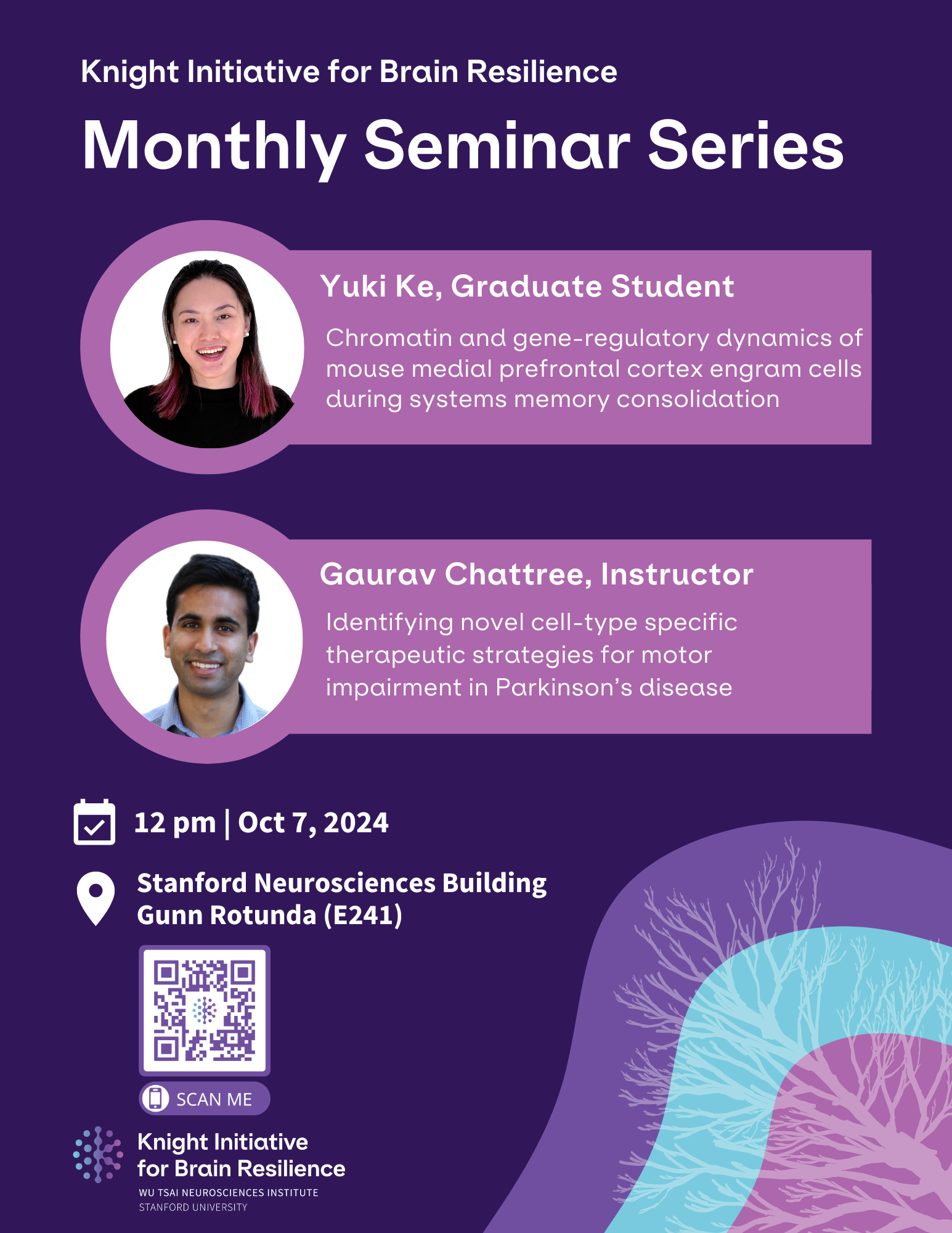The first Monday of each month, the Knight Initiative for Brain Resilience will host monthly seminars to bring together awardees, affiliated professors and students for a series of 'lab meeting' styled talks. Two speakers will discuss their brain resilience research, experiences in the field, and answer questions about their work.
To support our researchers' participation in this open science ‘lab-meeting style’ exchange of ideas, these seminars are not streamed/recorded and are only open to members of the Stanford community.
Yuxi Ke, Stanford University
Chromatin and gene-regulatory dynamics of mouse medial prefrontal cortex engram cells during systems memory consolidation
Storage of long-lasting memories involves “systems consolidation”, where memories that are initially stored in the hippocampus are re-encoded in neocortex, often in a more abstract form. This takes weeks to months and may primarily occur during sleep. "Engram" cells in the neocortex functionally mature over systems consolidation, store particular long-lasting memories, and their gene transcription changes are crucial for these memory processes. However, how these cells acquire remembered information during systems consolidation and the specific gene regulation events involved remains unclear. In this work, we identify changes in chromatin architecture and gene expression in these cells that support long-lasting memories.
Gaurav Chattree, Stanford University
Identifying novel cell-type specific therapeutic strategies for motor impairment in Parkinson’s disease
Parkinson’s Disease (PD) is expected to affect over 1 million people in North America by 2030, and while symptomatic treatments exist, they are prone to significant side effects that limit their use. This research investigates how specific types of neurons in brain areas that control movement are impacted in PD, using cutting-edge optical and genetic methods to identify new, precise drug targets for symptom improvement. This research could lead to the development of targeted treatments with fewer side effects than those currently in use, significantly enhancing the quality of life for patients with PD.


